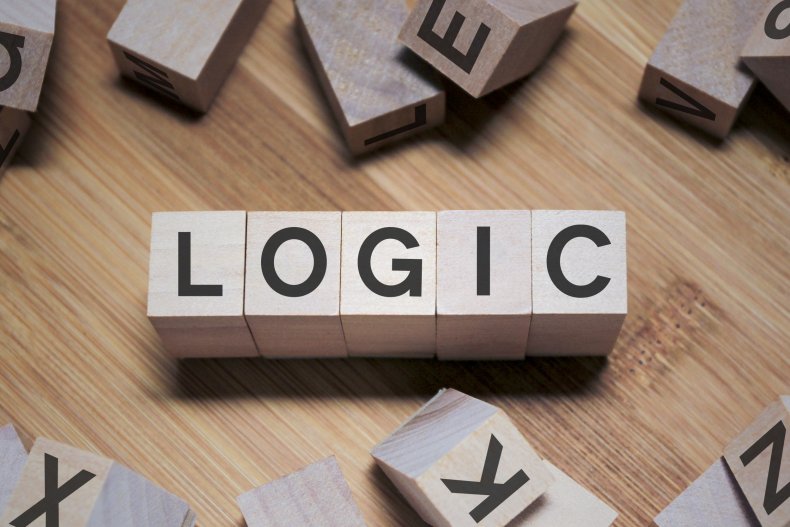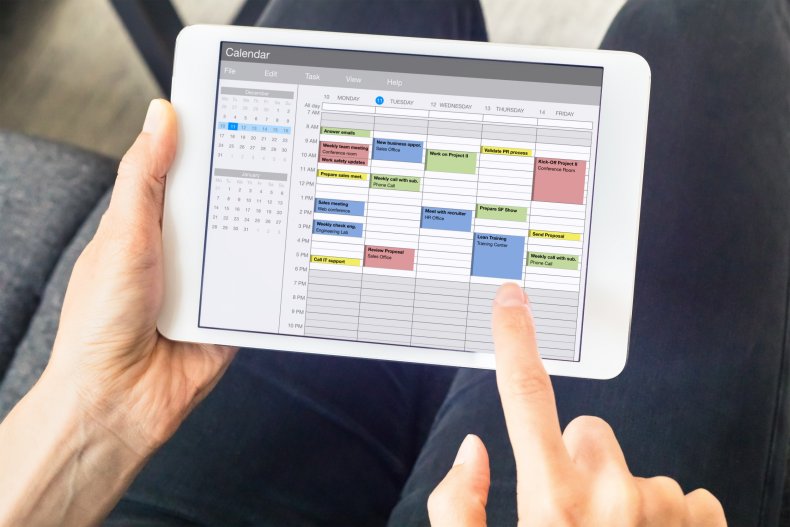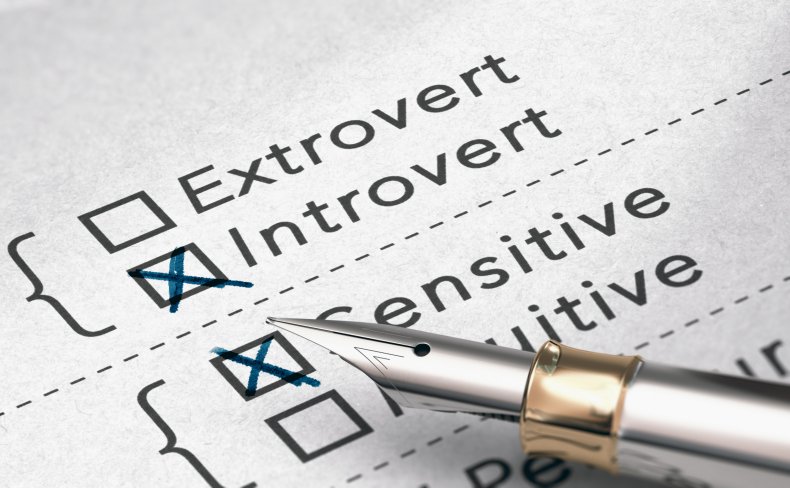Are you reserved and quiet, focused on your thoughts, and the kind of person who bases decisions on logic rather than hunches? If so, you may be an ISTP type on the Myers-Briggs personality indicator.
ISTP is one of the 16 distinct personality types identified by two American writers—Isabel Myers and her mother Katharine Briggs—in the middle of the 20th century. Their Myers-Briggs Type Indicator (MBTI) is now widely used in corporate settings and elsewhere, although some psychologists have questioned the usefulness of its personality profiles. (For more on this debate, see the section "Limitations of the MBTI Tool" below.)
Here, experts explain what it means to have an ISTP personality.
What Does ISTP Stand For?
Each MBTI personality type is based on an individual's four psychological preferences. ISTP stands for "introversion, sensing, thinking, perceiving," according to John Hackston, head of thought leadership at the Myers-Briggs Company.
He told Newsweek that a person with an ISTP personality prefers:
- To focus their attention on their inner world of thoughts and feelings rather than the outer world (introversion)
- To pay more attention to practical, solid data rather than possibilities and connections (sensing)
- To base decisions on objective logic (thinking)
- Not to have their life too planned and organized (perceiving).
Hackston added: "ISTPs quietly take in what's going on and then quickly make a practical and logical decision—which they sometimes need to remember not to keep to themselves."

Why Are ISTP Types Also Known as Virtuosos?
Aqualus Gordon, associate professor of psychological sciences at the University of Central Missouri, told Newsweek that a person with an ISTP personality is sometimes referred to as a "virtuoso" because "they tend to be interested in/good at creating and fixing things in 'real life,'" as opposed to "emotional, social or otherwise intangible problems."
An ISTP may enjoy fixing cars, painting, construction, computer repair or engineering, according to Gordon.
Myers-Briggs prefers to describe the type as "logical pragmatist," Hackston said. It may not be as "whizzy" a label as virtuoso, he said, but it is "one that I think better captures the essence of what being an ISTP really is about."
How Rare Is the ISTP Type?
About 6.5 percent of people have ISTP preferences, according to Hackston. "So, it's not the most common type, which is ISTJ—or introversion, sensing, thinking, judging. Neither is it the least common. That's INTJ—or introversion, intuition, thinking, judging."
Gordon suggested that ISTPs make up around 5 percent of the population and are "a little more commonly" male than female.
"ISTPs are slightly less common than average, which is mostly due to introverts overall being less common than extroverts," he said.

How Do You Know If You Are an ISTP?
Hackston suggests that you could have an ISTP personality if you:
- Want to know the facts and practicalities of a situation rather than the theory
- Are good at finding the logical answer and don't see why people must "bring in emotions and values where this isn't relevant"
- Have a tendency to be critical, perhaps even cynical at times
- Like variety
- Don't like rules
- Are often quiet and reserved.

Limitations of the MBTI Tool
John D. Mayer, a psychology professor at the University of New Hampshire, told Newsweek that "the MBTI has a fascinating history," but there was "a gap between the relatively high public interest in the MBTI and its high level of use, on the one hand, and research on the scale, on the other."
Mayer explained: "A number of cautionary reviews about the MBTI came out in scientific journals during the period 1990-2010. Since that time, with a few exceptions, there have been relatively few peer-reviewed publications that use the test and have appeared in customary psychology journals."
Other researchers such as Gordon defend the tool, saying MBTI and "associated type theories" receive a lot of critical scrutiny, "most of which I would call baseless."
Gordon added: "I haven't found any arguments against these types of tests that are based on actual research"—except for a 2005 study published in the Consulting Psychology Journal: Practice and Research.
That research found that "conclusions regarding the superiority of either the MBTI or other instruments are, at present, premature," he wrote in a 2020 article for Psychology Today. In his article, Gordon also suggested that the academic community did not take the work of Myers and Briggs seriously at first, because they were women and did not have graduate degrees.
The available research, Gordon told Newsweek, "actually demonstrate[s] that the MBTI is equal to or more valid than academically respected personality tests" such as the "big five," also known as the five-factor model.
However, Mayer suggested that the MBTI was "out-of-step relative to contemporary work in the field of personality psychology." Its four dimensions "fail to map onto dimensions of personality studied today," with the partial exception of extraversion-introversion, he said. "For that reason, scientific evaluation of the instrument has fallen off."

John A. Johnson, professor emeritus of psychology at Penn State University, told Newsweek that while he is "more sympathetic toward it than most academic psychologists," he does have reservations about the MBTI's categories.
He said the "fundamental problem" with placing people into categories is that a vast number are in the middle ground between opposing types. But the MBTI "insists on forcing people into a type or its opposite, such as 'extrovert' or 'introvert.'
"This throws away a lot of information about people in the middle. Someone who is barely above the line will be more similar to someone barely below the line than [to] people in the same type category with more extreme scores."
The MBTI tool "compounds this problem with four forced categorizations and then claims, incorrectly, that there is qualitatively distinctive information in each of the 16 four-letter type categories beyond what can be known from a person's separate scores."
Richard W. Robins, professor of psychology at the University of California, Davis, agreed, telling Newsweek that the MBTI approach is "analogous to measuring people's height and then classifying them as either tall or short and ignoring more precise differences in height."
He suggests there are other "fundamental problems" with the tool:
- A person's personality type (or score on each of the four dimensions) is "often quite different" when the person retakes the test, even a few weeks later when "no real personality change is likely to have occurred."
- The MBTI scores "do not consistently predict success in school, job performance, health or other life outcomes that we know are related to personality."
- It omits an important aspect of personality. The neuroticism-emotional stability domain, which is one of the "big five" traits, is not considered.
- Some type descriptions are so vague they could apply to almost anyone—for example, "concerned with how others feel about you" or "bored by routine".
The academic debate continues, but Gordon pointed to the MBTI's "widespread use in business and among organizations and casual users." He added: "People understand and identify with their results in ways that they cannot or do not with other tests or theories."

"type" - Google News
April 24, 2022 at 11:00PM
https://ift.tt/EcHC3zY
What Is an ISTP and How to Know If You Have the Virtuoso Personality Type? - Newsweek
"type" - Google News
https://ift.tt/gFpli7E
https://ift.tt/2miX6QD
Bagikan Berita Ini














0 Response to "What Is an ISTP and How to Know If You Have the Virtuoso Personality Type? - Newsweek"
Post a Comment